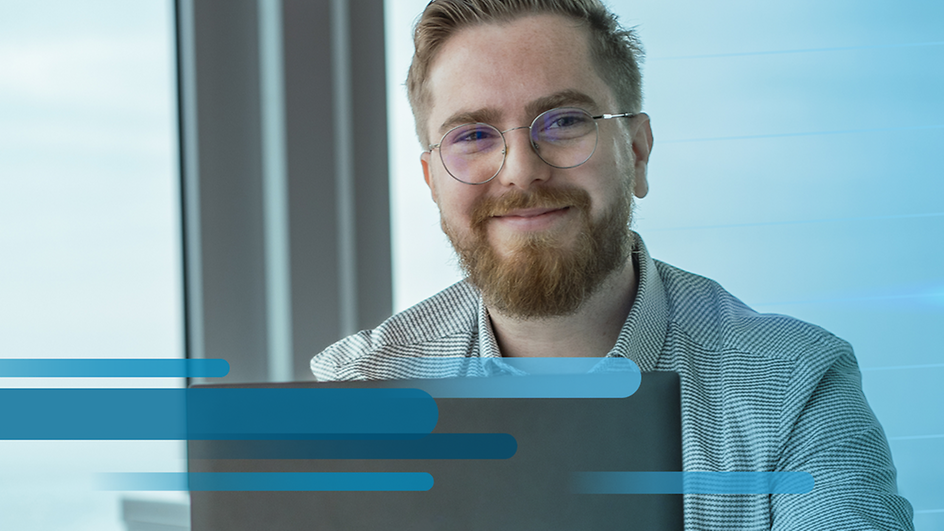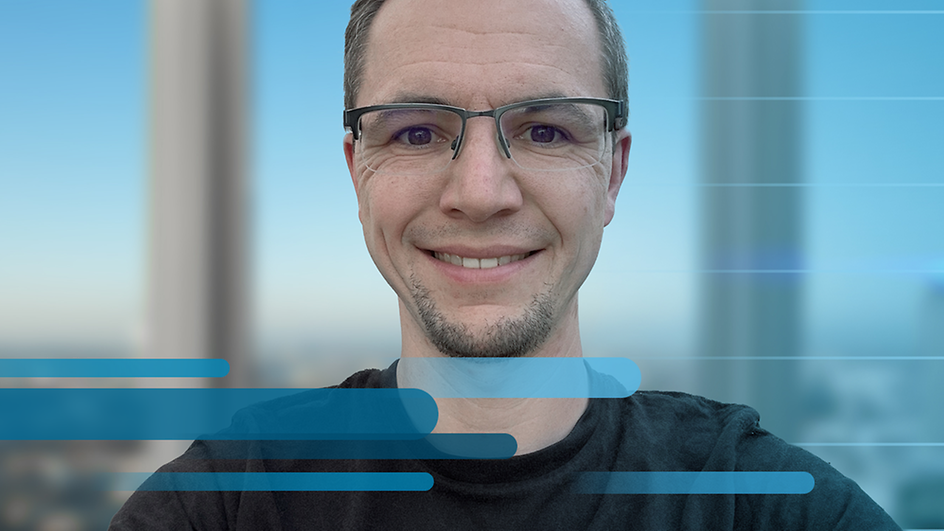Article: "I love the railway and want to understand it all!" – a look at the working world of business engineer Laura Hinsch
Laura is curious and thinks analytically. Combined with her many years of experience as a data expert, this makes her an ideal fit for her role as a business engineer for big data and AI solutions at DB Systel.
As a business engineer, Laura is responsible for collecting project requirements and translating them into practical specifications. She has been working in a consulting team at AI Factory since the end of 2022. AI Factory is a unique joint project run by DB Group management and DB Systel to create a networked landscape of data and AI systems from exciting individual initiatives in the area of artificial intelligence.
In practice, the role of a business engineer can differ depending on the company. Some business engineers are assigned to ongoing projects and provide ongoing support to their contact persons, while others are predominantly part of a sales process. Laura's situation is different again: in her consulting team, the consulting itself is the product that the Group partners want. The core product is the "system strategy". These projects focus on laying the groundwork for implementation: what needs to be done, how much does it cost and who can implement it? Most consulting projects for a system strategy takes two to three months. In some cases, Laura and her colleagues remain involved with a project during the implementation phase.
The tasks involved in requirements analysis
Laura thinks fast and talks fast. This ability to learn new things quickly is a great help in her job: "You only have to explain things to me once," she says. She needs to quickly grasp what the project contacts want to achieve and translate these requirements into practical specifications. Communication is another key aspect of her work. Regular discussions with different partners and colleagues are all part of the job. Laura's ability to adopt different perspectives and maintain a positive approach at all times has served her well.
"No matter what you are passionate about, we have a team in which you can realise your potential. We have historians who manage teams and sociologists who develop software. There are even mathematicians like me who record requirements and spend a lot of time talking to people."
In practice, Group partners come to the AI Factory consultants with a technical idea or an existing proof of concept and want to understand the implementation procedure: "What do I need to build now? Which architecture, which interfaces and which connection to existing systems do I need? And how much will it cost?" Laura and the team extract challenges like these from the requirements and address them accordingly. She then develops scenarios, defines required functions or classifies data sources. The architecture of a potential solution emerges from these structured requirements. The system architects on the consulting team are responsible for this. It is Laura's job to explain these technical concepts and describe how the proposed solution is a perfect fit for the original requirements.
To do this, she needs to be technically conversant with the relevant issues. However, she cannot program, nor does she need to. "I need to have the technical understanding to be able to classify requirements and have a solution in mind. The basic concept." As a business engineer, it is helpful to approach challenges with an open mind, resisting the urge to jump in with a technical solution straight away. Before bringing technology into the equation at all, Laura needs to understand the goals, processes and business requirements of the contact persons.
How Laura became a business engineer
Laura originally studied mathematics because she was attracted to the idea of pure reasoning. She is extremely curious and can get excited about almost any subject: "I want to know things. I want to understand things. Analytical thinking helps with that." Before moving to DB Systel at the end of 2022, Laura had spent her career working with data at DB Netz AG. She originally joined as a data quality officer for infrastructure master data. From 2016 onwards, as programme manager and team lead, she built up the big data team in production at DB Netz AG and developed it in the direction of data science. She was also one of the first partners in the "Zero.One.Data" business unit. DB Systel's ZERO.ONE.DATA (ZOD) network is the point of contact for data and artificial intelligence in the DB Group and currently includes more than 400 data experts.
"I feel like I really fit in at DB Systel. And if you want to develop professionally, we will find the ways and means to make this happen. We love diversity because it encourages people to evolve."
One of the factors that motivated her move to DB Systel was her husband. He had started at DB Systel two years before and told her: "Laura, you have to come here!" While she is still experiencing a kind of culture shock, she says: "It is everything I had hoped for." Even during the "Be a part of IT" welcome week, she was impressed by the fact that a whole day was dedicated to the values and culture of DB Systel. "Being able to see it from the inside now is pretty great," she says.
Laura has found that working in a self-organising environment takes some getting used to: "I have never been very good at waiting for someone to tell me what to do. But this is a different story. The amount of effort involved in having to do this as a team cannot be underestimated." Laura's team mainly uses Microsoft Teams to organise itself via different channels. However, she also believes that it is important to meet colleagues in person and exchange ideas. Which is why Laura, who has chosen to live in Frankfurt, voluntarily travels to the office in the Silver Tower three to four times a week: "I can do it in the way that works best for me."
Do you also want to work in a way that works for you? Our job board always has suitable job offers for a variety of roles and interests. And we are still looking for additional support in Laura's team.




